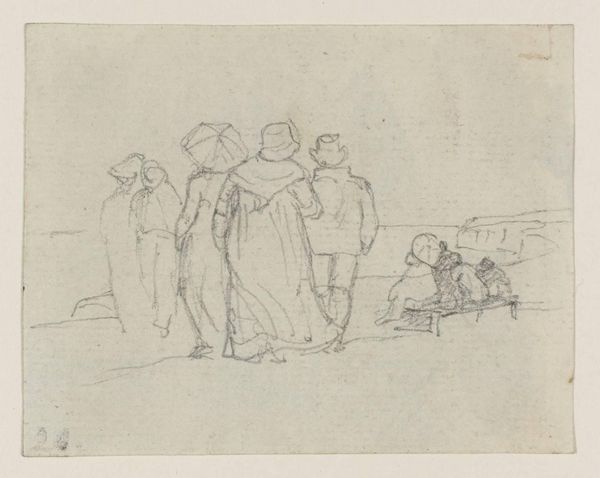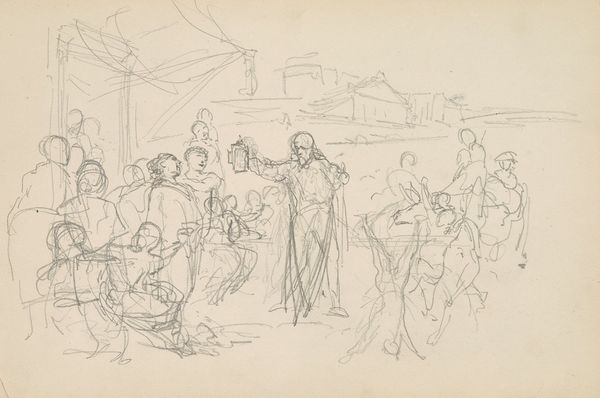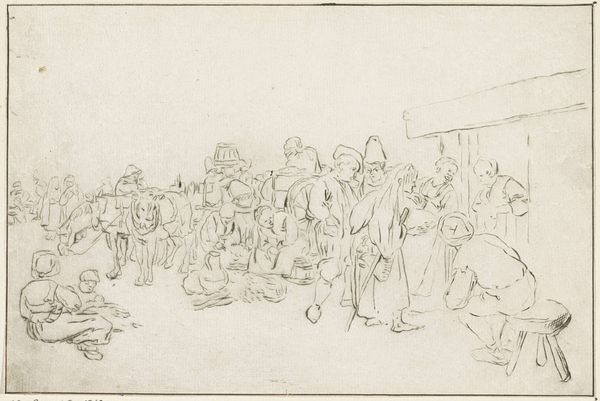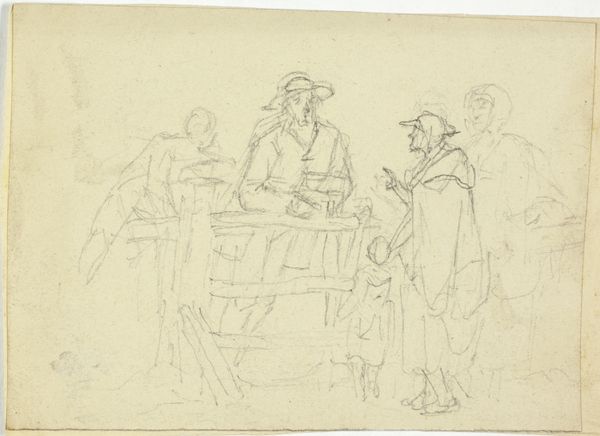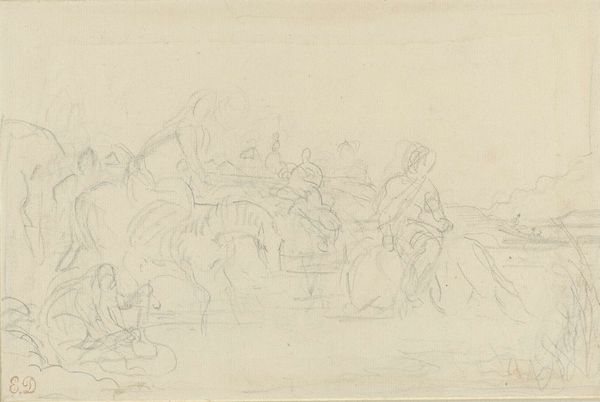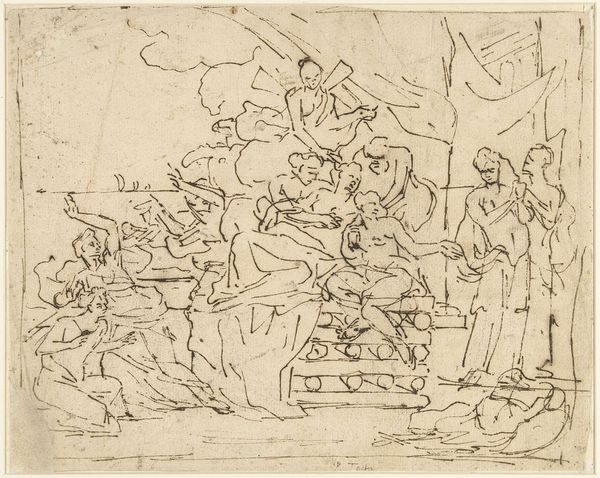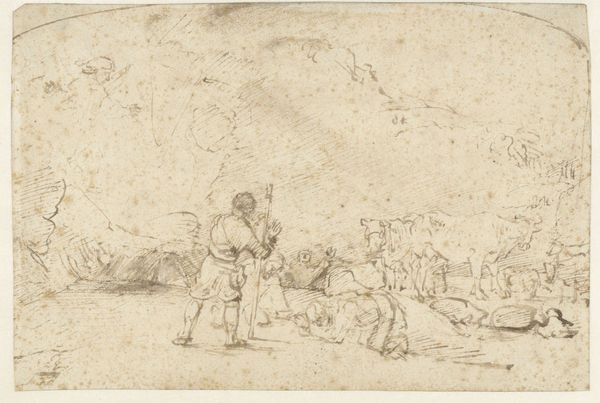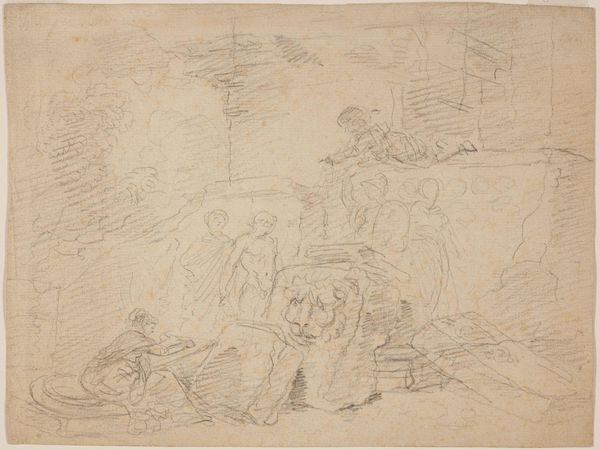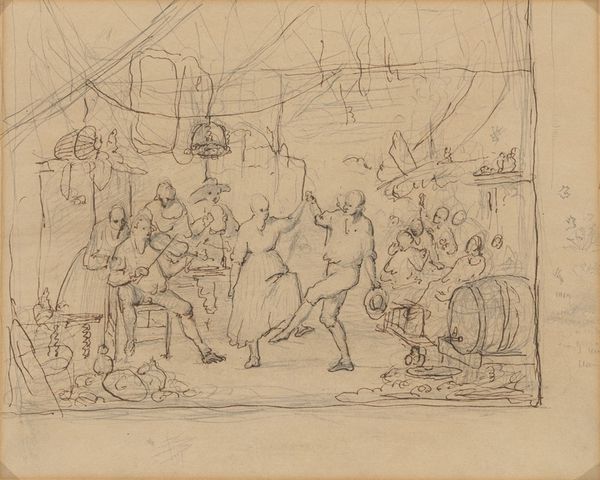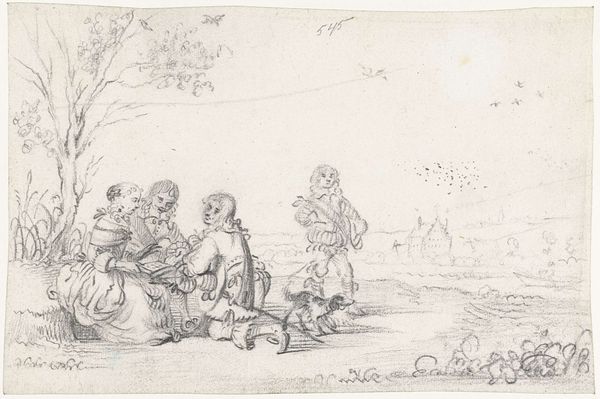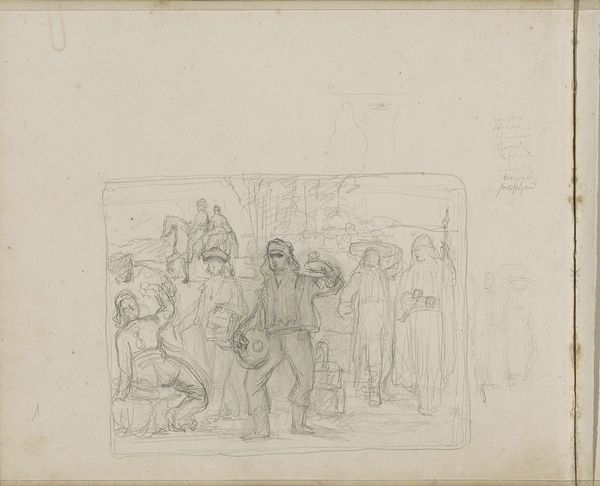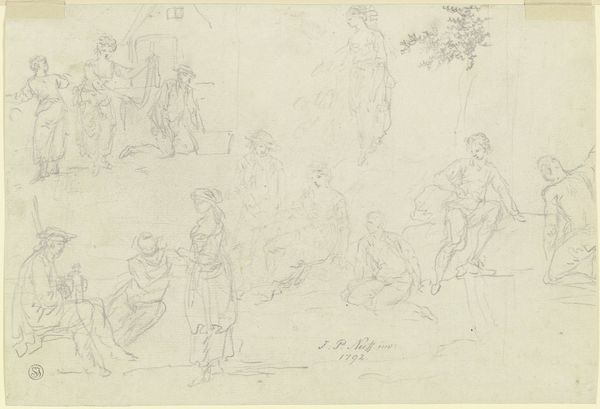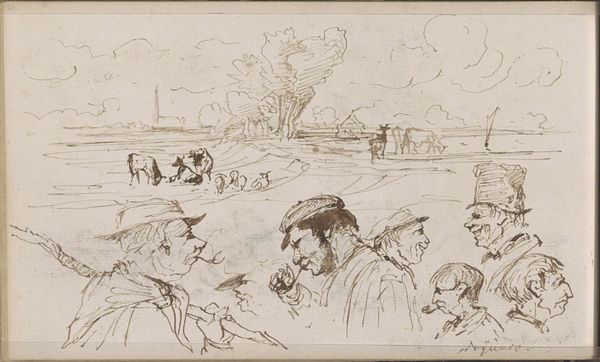
drawing, pencil
#
drawing
#
light pencil work
#
impressionism
#
pencil sketch
#
landscape
#
figuration
#
personal sketchbook
#
idea generation sketch
#
ink drawing experimentation
#
pen-ink sketch
#
pencil
#
sketchbook drawing
#
genre-painting
#
storyboard and sketchbook work
#
sketchbook art
#
realism
#
initial sketch
Dimensions: height 215 mm, width 335 mm
Copyright: Rijks Museum: Open Domain
Curator: Here we have a pencil drawing by Jozef Israëls, dating from between 1834 and 1911, titled "Strand met wadende vrouwen en spelende kinderen" – "Beach with Wading Women and Playing Children." Editor: It has this wonderfully wistful feel to it, doesn’t it? All these hazy, light figures just existing on the shore...almost as if they're ghosts of summer memories. Curator: Precisely. Israëls often depicted scenes of everyday life with a sensitivity that resonated deeply with the public. This work is particularly interesting as it is done in pencil, lending a casual feel, providing insights into the process of pictorial composition. Editor: It’s like glimpsing a moment that was never meant to be frozen in time, yet it is, indelibly. The muted greyscale creates an almost cinematic, old-film feel. What's amazing to me is how much movement is suggested by so few lines. Curator: Indeed. The quick, light pencil strokes capture not just the physical forms of the figures but the very atmosphere of the beach. The figures appear engaged in play and simple tasks, seemingly far away from the political issues affecting them. The beach was a site where these rules can be overlooked, and freedom can be enjoyed, even if briefly. Editor: Right? There is such simplicity. Looking at their posture it hints at those small intimate dramas, almost fleeting gestures and hidden meanings behind what one may think is just a genre scene. Curator: And that intimacy speaks to Israëls' social consciousness. While celebrated, this tendency towards sentimentality and domestic scenes attracted criticism from some who believed art should engage with broader social struggles more directly. It raised, once again, the question of what art is 'for.' Editor: Art is for slowing down and seeing the world afresh, isn’t it? In every hurried line I see something universal about humanity itself. Curator: Well, whatever it is, art certainly prompts contemplation. Editor: Yeah, looking at this drawing, I just wanna breathe deep and run into the sea.
Comments
No comments
Be the first to comment and join the conversation on the ultimate creative platform.
